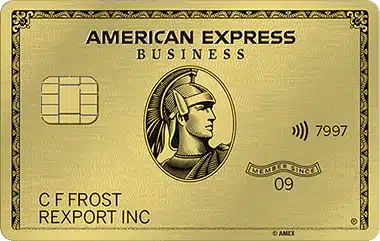As a small business owner, you play several roles in your company. You’re usually the manager, sales leader, customer service head, and, in some cases, the accountant and bookkeeper all at the same time.
You have lots of things to focus on in order to grow your business and make it a great success. But, despite all of these responsibilities, keeping your company’s records should always be one of your top priorities.
Unless you’re an experienced accountant or bookkeeper, you need to equip yourself with the basic accounting and bookkeeping skills in order to efficiently handle the financial aspect of your company.
So, keep reading this article to learn more about the best small business accounting and bookkeeping small business tips you can employ in your company.
Best Small Business Accounting Tips
As a small business owner myself, I know the ins and out of how to better manage your bookkeeping. With a few years of experience on my belt, here are my top small business accounting tips to save your time and money.
1. Know basic bookkeeping and accounting lingo
Unless you’re running an accounting and bookkeeping business, you’re probably unfamiliar with its terms and lingo.
However, knowing the necessary bookkeeping and accounting lingo is essential when it comes to managing the financial affairs of your business.
Although you may have an accountant and bookkeeper on your side, it’s best if you’re familiar with how the terms are being used in every financial transaction.
Sales, accounts receivable, asset, liability–understanding all of these concepts and other technical terms can help you get the most out of your accounting and bookkeeping system.
Or, if you decide to use outsourcing accounting services like Xendo, you won't have to worry about it and let the professionals handle your numbers.
Xendoo delivers online bookkeeping, accounting, and tax solutions to small businesses with fewer than 20 employees. The platform integrates directly with Quickbooks Online and Xero. Let a team manage your finances so you don't have to.
2. Essential financial reports for your small business
Aside from knowing and understanding the key terms, it’s also crucial that you know how to use them in real life.
Primarily, putting them into use can help you determine what’s actually going on with the financial aspect of your small business.
You can do this by making the three must-have financial documents that would ensure your venture’s triumph in the industry to which it belongs.
The said documents include:
Cash flow statement
This accounting and bookkeeping document can help you figure out where your company’s cash flow is going. With this statement, you’ll know how much profit your small business is making every day, and the amount of investment you’ve made and are paying off.
Balance sheet
This document outlines the worth of your small business. In short, a balance sheet provides a breakdown of how much assets, equity, and liability your company has. By simply looking at the sheet, you’ll know all the things that you owe and own. An example of a liability would be if you took out a startup business loan to fund your small business.
Profit and loss
This document outlines how profitable your small business is. When you review it, you’ll know how much profit or losses you generate over a specified period. Because of this, it’ll be much easier to lower your business expenses and determine your company’s financial future.
Related: 11 Steps to Starting Your Own Business
3. Separate business and personal expenses
When it comes to small business accounting and bookkeeping, combining your personal and business expenses may not be a great idea.
This situation will definitely result in substantial tax problems in the future. While it’s understandable to co-mingle expenses during startups, you have to separate your business and personal expenses as soon as you establish your official business brand.
At this stage in your business journey, it's smart to open a separate bank account to manage your finances with ease. If you're just starting out, NorthOne Business Banking is a perfect choice.
Why? It’s tailor-made for busy business owners like you, offering:
- Free – with no hidden fees, ever.
- No minimum opening deposit – get started with as little as $50.
- Unlimited transactions – including ACH payments, electronic transfers, and deposits.
- Envelope budgeting system – easily budget for taxes, rent, or payroll with NorthOne's built-in budgeting tool.
- Wide ATM network – free withdrawals at any MoneyPass ATM.
- Software integrations – seamlessly connect to QuickBooks, PayPal, Etsy, Shopify, and more.
- Free Mastercard® debit card – with mobile controls to lock or unlock your card instantly.
For small business owners looking to streamline their finances, NorthOne makes banking fast and easy. Open your account today and take control of your business’s financial future!
- A digital banking app for small businesses, freelancers, and startups
- Send payments, deposit checks, and access funds easily
- Smart money management – Budget with envelopes, integrate with tools like PayPal and Stripe, and get real-time insights
Also, don’t forget to get a business credit card to help your company set its good credit score, which is distinct and separate from your personal credit score.
A business credit card like the American Express Business Gold Card has a ton of perks for small business owners, and I have been using mine for years now.
The American Express® Business Gold Card is an excellent choice for business owners looking to maximize their points-earning from a single card, with 4x bonus categories that automatically reflect your highest spending areas each month.
4. Track every business expense
By now, you already have your business bank account working for you. That’s why there’s no more reason for you not to keep track of every expense your small company makes.
Make sure to secure and keep all your receipts, and create a detailed record of all your business expenses. That way, you’ll know what types of costs you can deduct during tax season. You can easily do this by using Quickbooks Online.
Moreover, if you're looking for an easy way to do expense tracking, make use of a business credit card for every business purchase you make.
5. Save important bookkeeping records
Dealing with the financial affairs of your small business isn’t easy. And, without proper bookkeeping records in place, you may find yourself in trouble, especially when it comes to matters concerning tax.
With that being said, you always need to save essential bookkeeping records and other documents if you want something to be deducted from your taxes and other expenses.
These records may include invoices, bank statements, deposit slips, sales receipts, tax returns, and many more.
Fortunately, in today’s world, saving essential records can already be done digitally. For example, there’s a variety of accounting software, like Quickbooks Online and Wave, that you can use to generate online invoices and other documents. Because of technology, these records can be safely saved on the software itself and be accessed anytime.
Lastly, if you want a digital copy of your physical documents, scan and store them in an encrypted, protected file on your computer. That way, you can have quick and easy access to them anytime you want.
Related: How to Start a Micro Business in 6 Easy Steps
6. Be prepared for major expenses
Generally, you have your accounting and bookkeeping documents to help determine the financial future of your small business.
However, just like other business affairs, nobody can predict what may happen to your company in the coming years.
Given these circumstances, it’s always important to keep a part of your profits for your savings.
Make sure to keep an emergency fund that can cover any unexpected expenses that may come your way. Also, don’t ever drown your business into debts. When you operate without them, your venture will become more profitable in the long run.
7. Get the right accounting method
Getting the most out of accounting and bookkeeping will be much easier if you’re able to employ the right accounting method.
By using the proper accounting method, you’ll know how to properly organize and track your revenue and business expenses.
Below are the two common types of accounting methods:
Accrual accounting method
This method is beneficial for small businesses with lengthy business cycles. The income is recorded regardless of whether the cash is right away collected or not. In short, if the collection of money from the customers takes a long time, using the accrual method of accounting can be the best way to go.
Cash basis accounting method
This is the most convenient method you can use for your company. Unlike the accrual method, you don’t need to wait for an extended period of time before you can have a real-time view and access to cash flow. Once you receive the cash from the customer, you can thereafter record it as income in your book.
Related: 6 Ways to Grow Your Business Fast
8. Prepare for personal and business taxes
When running a small business, you really have to get yourself prepared for the payment of major taxes.
Since the preparation process can be challenging, it’s essential to have these things ready before the expiration of the deadlines. By doing this, you can avoid any mistakes that may cause big trouble for your business.
To have a better understanding of how personal and business taxes are prepared, you need to be familiar with some common taxes you’re going to deal with throughout the year. These may include the income tax, payroll tax, and sales tax.
However, if you don’t know where to start, hiring a professional accountant can help you prepare both your personal and business taxes.
Final Thoughts
Indeed, without proper knowledge and experience, handling accounting and bookkeeping matters for your small business can be a complicated undertaking. However, by keeping the above-mentioned tips in mind, you're able to increase your chances of achieving growth and financial success in no time.
- 1. Know basic bookkeeping and accounting lingo
- 2. Essential financial reports for your small business
- 3. Separate business and personal expenses
- 4. Track every business expense
- 5. Save important bookkeeping records
- 6. Be prepared for major expenses
- 7. Get the right accounting method
- 8. Prepare for personal and business taxes











